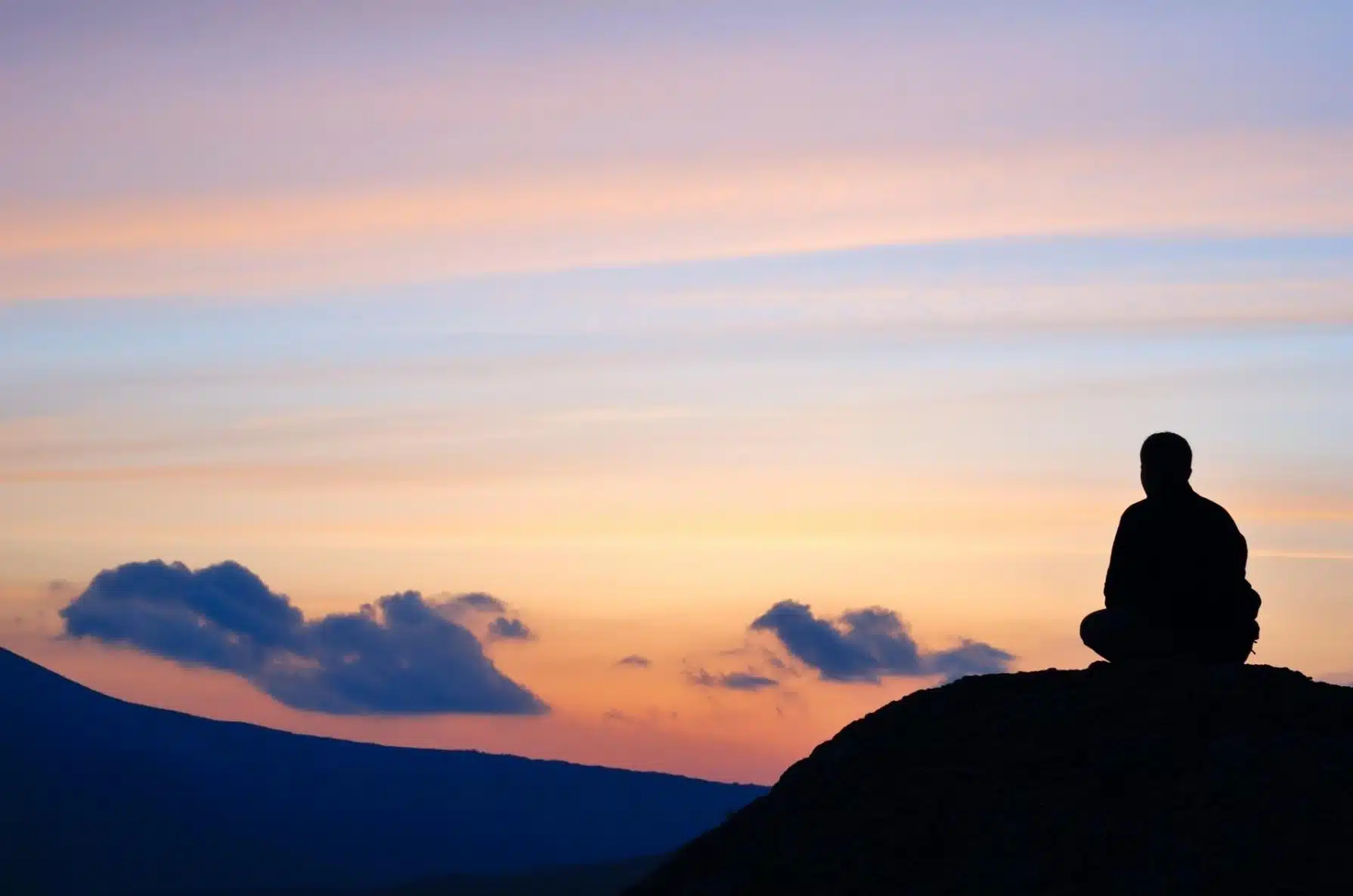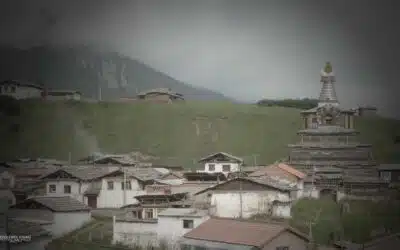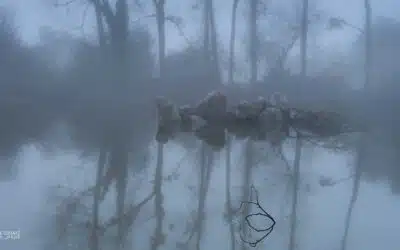Speed-Dharma

Written By Denis Martin
Blog | Mind and Dzogchen | Reflections on life
In “Speed-Dharma” Denis points out that despite the impression of acceleration and time famine, patience remains a virtue on the path.
Series: Difficult conditions in Dzogchen
SPEED-DHARMA
From Gutenberg to artificial intelligence and from the steam train to SpaceX, the flow of information and the realm of possibilities are undeniably beyond our scope. Such technological advances promise us freedom from the constraints of time and space. However, paradoxically, we experience a constant acceleration of time and reduction of space caught up in permanent dissatisfaction, if not veiled by distractions, and the incessant projection of the future. Such is the nature of samsaric existence, driven by an endless thirst and a frantic flight from impermanence; and current conditions reveal its full intensity.
As Alexandre Escudier points out, “For the same measurable unit of calendar time, individuals in modern societies (industrialized, urbanized, massified societies, etc., in short, functionally differentiated societies) are subjected, compared to their ancestors, to an ever-increasing number and density of events and social interactions. To such an extent that, assailed on all sides by this proliferating social reality, they ultimately feel that their psychic economy can no longer synthesize the infinite diversity that overwhelms them.” [1]
“As we confront reality, the texts, and the teachings, our view naturally deepens over time, rather than by chasing after time .”
Dominated by the tyranny of doing and experiencing things, we would never be satisfied, to the point of experiencing a real “time-famine,” according to Hartmut Rosa’s expression. [2]
In response, we have entered the era of “fast” and “speed”: fast food, fast fashion, speed dating, speed reading, and so on. Even the grieving time has not been left untouched, with “Drive-thru funerals” that allow you to pay tribute to your loved one in just three minutes from the privacy of your vehicle.
What about the time needed to progress on a spiritual path such as Dzogchen, which is presented as effortless and direct? Can we really awaken at the speed of a scroll? Could Great Perfection be the antidote to the “time famine” of modern times, a dazzling, speed-dharma-type path?
According to tradition, Garab Dorje realized his true nature instantly. However, since the direct teaching of the three aphorisms, human history and society have evolved toward greater complexity in their representation of reality. Consequently, the teachings have had to adapt by offering an increasingly developed and complex presentation of the nature of mind. To date, for most of us, the gradual path seems to meet our needs. And this path begins with the Base, that is, the View. [3]
However, the Dzogchen view, which is very subtle, cannot be established by willpower alone; it takes time to develop. As Mila Khyentse Rinpoche reminds us “(…) the time of the Great Perfection is not the same as ours. It may take a number of lifetimes…”
How can we reconcile this temporal dimension with the current “cultural motor”, which Hartmut Rosa describes as encouraging us to believe that accumulating activities and experiences will extend our lifespan ? “This is one of the tragedies of modern humanity: while feeling trapped in an endless race like a hamster in a wheel, our hunger for life and the world is not satisfied, but increasingly frustrated. The eudemonistic promise of modern acceleration therefore lies in the (tacit) idea that accelerating the pace of life is our response (i.e., that of modernity) to the problem of finitude and death.” [4]
By adopting the (preparation) practice of the Great Perfection as just another activity in our daily routine, it only reinforces the feeling of acceleration and dissatisfaction. Similarly, as long as there is a desire to transform conditions through practice, we risk limiting its intensification to a form of speed-dharma that spins in its wheel and eventually exhausts itself.
The Dzogchen teachings of the three series remind us continually that the result of the Great Perfection path is inherent in the Base. There is no need to strive to achieve a specific goal. As we confront reality, the texts, and the teachings, our view naturally deepens over time, rather than by chasing after time. In this way, we release what the tradition calls “the disease of effort.”
Along the path, patience during the integration period is revealed to be an essential virtue for developing the view and maturing the enlightened mind that is its foundation. Ultimately, the focus is not on intensifying the practice itself but on deepening the view and cultivating an attitude oriented toward enlightenment, as Longchenpa teaches us [5]:
Whether it may be completed In three immeasurable kalpas and so forth,
Whether it is swift or slow to come,
Or whether freedom may be gained within a single life:
All this depends upon one’s strength of mind.
cf. The Trilogy of Rest by Longchenpa for a complete presentation of the stages of the path. The first volume, Finding Rest in the Nature of Mind, focuses on presenting the basis, i.e., the View according to the Dzogchen perspective.
[1] Alexandre Escudier. Le sentiment d’accélération de l’histoire moderne : éléments pour une histoire. Éditions ESPRIT, 2008/6 Juin, p. 177 – free translation from the French version. BACK
[2] Hartmut Rosa. Aliénation et accélération. Vers une théorie critique de la modernité tardive. La Découverte, Paris, 2014 – English version : https://en.unipress.dk/udgivelser/a/alienation-and-acceleration/ BACK
[3]cf. The Trilogy of Rest by Longchenpa for a complete presentation of the stages of the path. The first volume, Finding Rest in the Nature of Mind, focuses on presenting the basis, i.e., the View according to the Dzogchen perspective. BACK
[4] Ibid. pp. 39-40 – free translation from the French version. BACK
[5] Longchenpa, Finding Rest in the Nature of the Mind. The Trilogy of Rest. Volume 1. Translated by The Padmakara Translation Group. Boulder: Shambhala Publications, 2017. Cf. Chapter 8 – Cultivating the attitude of mind oriented toward enlightenment – Stanza 12, p. 88. BACK
More Posts
Diebu
In this article, “Diebu,” Mila Khyentse discusses the places of the lineages, particularly that of Diebu.
Be authentic!
In "Be Authentic!" Denis explores authenticity in the master-disciple relationship, a living space in which the nature of mind is recognized.
The First Day
In this article "The First Day", Mila Khyentse talks about the first day of the Tibetan year and what we usually do in a primordial way.




